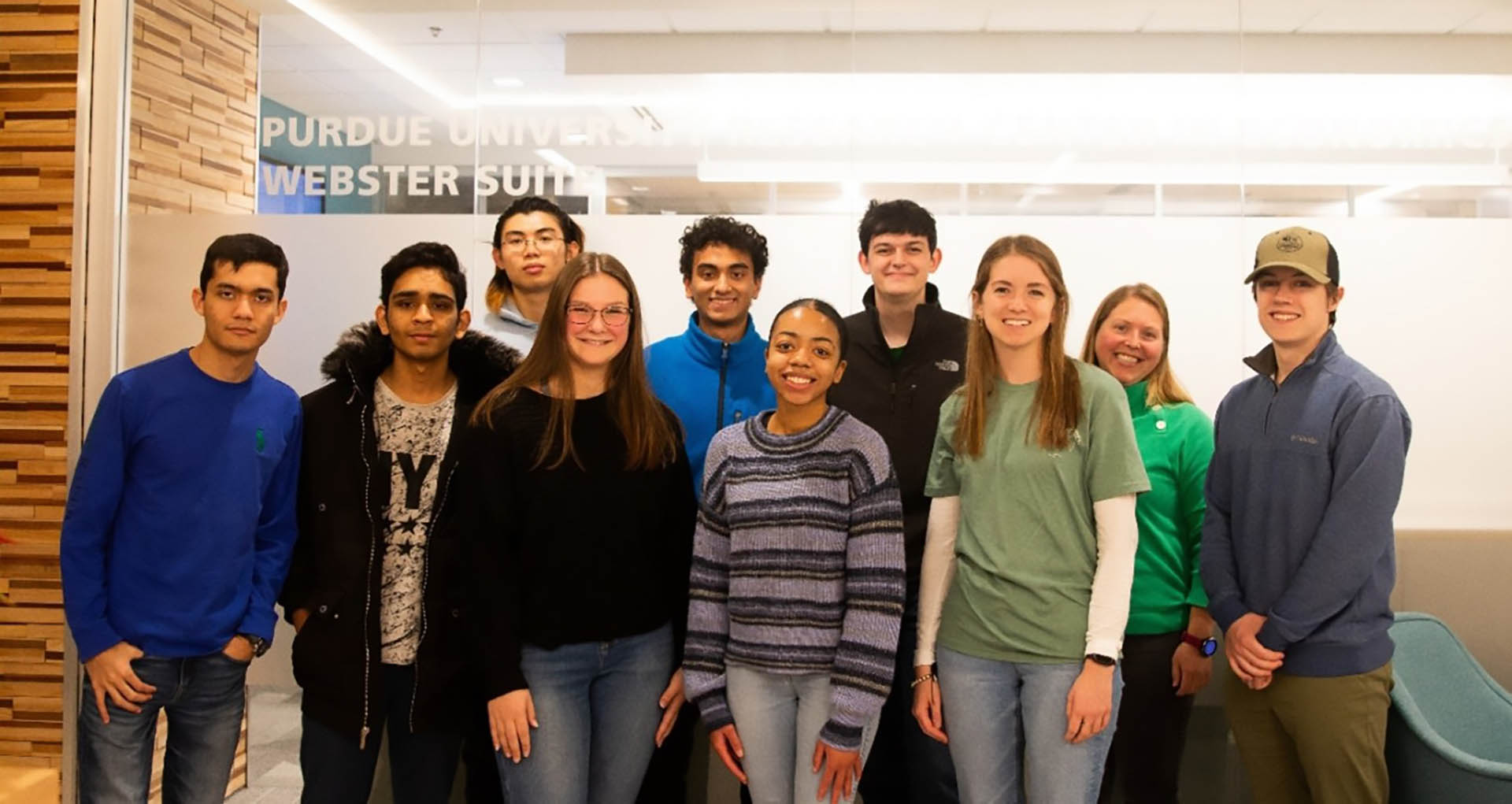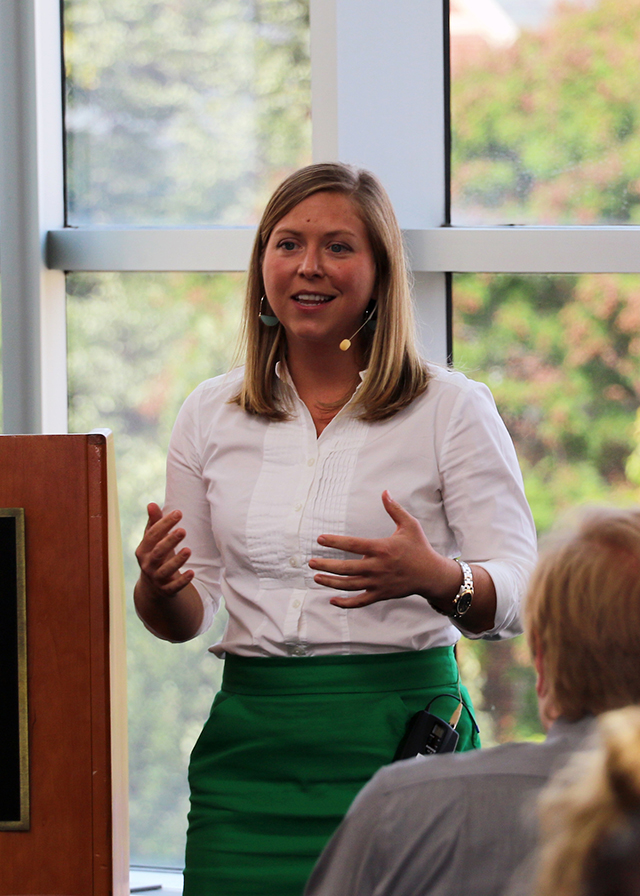
“It isn’t a class, it’s a conversation,” Michael Heraty, a junior majoring in biological engineering, says about a unique Purdue business school course, the Economic Scholars Program.
The pioneering class exemplifies the business school’s dedication to close study of transformative texts written by great thinkers and encourages thoughtful, in-depth discussion of economics topics. A different professor teaches the one-credit class each semester and focuses on an economic topic of their choosing.
The setting is intimate — no more than 12 students are chosen from a large set of applications. Undergraduates from around campus in many majors are encouraged to apply by submitting transcripts and a response to an essay question; successful completion of ECON 251 is required. That class, Microeconomics, prepares students for Econ Scholars well, as it covers the principles of microeconomic theory. Regardless of the focus of Econ Scholars in any given semester, the study of the choices individuals make and the incentives that influence those choices is helpful.

“Students are so motivated and interested in doing the readings and thinking hard about them, they just run with it. It's been really fun to watch.”
Jillian Carr, Associate Professor of Economics
Econ Scholars meet weekly for dinner and a discussion of assigned reading material — all class materials are provided at no cost to the student. After successfully completing the course, the students each receive a $1,000 scholarship.
In the fall of 2022, Jillian Carr, an associate professor of economics, taught Econ Scholars and focused on law and crime in society. After discussing the role of public legal systems in civic life, her students debated the desirability of fictional legal systems.
“One of the goals of this course is to get students engaged with classic texts in terms of thinking about the foundations of economics,” Carr says. “I think the students have enjoyed being able to evaluate arguments and make normative judgments about them in a way that we don't in a lot of economics classes.”
“In this class students are so motivated and interested in doing the readings and thinking hard about them, they just run with it,” says Carr. “It's been really fun to watch because it's not like a large classroom where I'm having to walk through the questions. The students really drive the conversations themselves.”
For students, the course offers a unique perspective on both the economics of crime and the value of having a deep knowledge of the history of business. “A lot of it is open-ended,” says industrial engineering major William Shi. “It's really great taking the ideas that you learn in the beginning and applying them to things you can evaluate and talk about instead of something that's just a discrete example.”
Kevin Mumford, an associate professor of economics and director of the Purdue University Research Center in Economics (PURCE), emphasizes the value of reading historical texts. “This is a unique experience where students read early texts that provide an insight into the way people were thinking about those economic issues in the late 1700s or early 1800s,” says Mumford, who teaches the course in the spring of 2023. “The surprising thing is that many of the things we are dealing with today are really the same kinds of economic issues they were dealing with hundreds of years ago.”

PURCE staff launched Econ Scholars in 2019 and plan each semester’s offering. The program’s funding, including the student scholarships, are made possible by PURCE donors.
Throughout the course, students read formative texts from authors such as Frédéric Bastiat and John Rawls, widely considered to be thought leaders in the fields of economics and philosophy. Because Carr chose to examine fictional legal systems, students watched clips from HBO's The Wire and read Philip K. Dick’s short story The Minority Report and excerpts from Terry Pratchett’s fantasy novel Guards, Guards! Each piece of media was examined, discussed, and evaluated for its depictions of crime and economics. Through analyses spanning both genre and time period, students were given the space to form their own opinions.
With an intentionally small class size and discussion-based lessons, Econ Scholars allows for deep engagement with the material.
“In Econ Scholars, I gained a new perspective on learning through the emphasis of critical examination, discussion-based learning, and application of literary texts to prior knowledge and real-world events.”
Joscelyn Bell, Accounting '24
“Everybody has a reason for why they view or think something different from you, and listening to their reasons will help you see a different perspective and the reasons for it,” says Sydney Brandt, a sophomore majoring in general management. “One element of this class I will be able to apply to other areas of my life is how important it is to look at a situation from the other person’s perspective.”
The Econ Scholars Program offers insight into the unique capabilities of Purdue students. Within the student body, there is a drive to engage deeply with material, sit with it, and form opinions. This type of deep learning and communication pushes students to reconsider and change the way they interact with the world around them.
“This has been one of the most unique learning experiences I’ve had at Purdue,” says Heraty. “It’s not a class. It’s part of your week. You look forward to it and gain a whole new academic experience.”